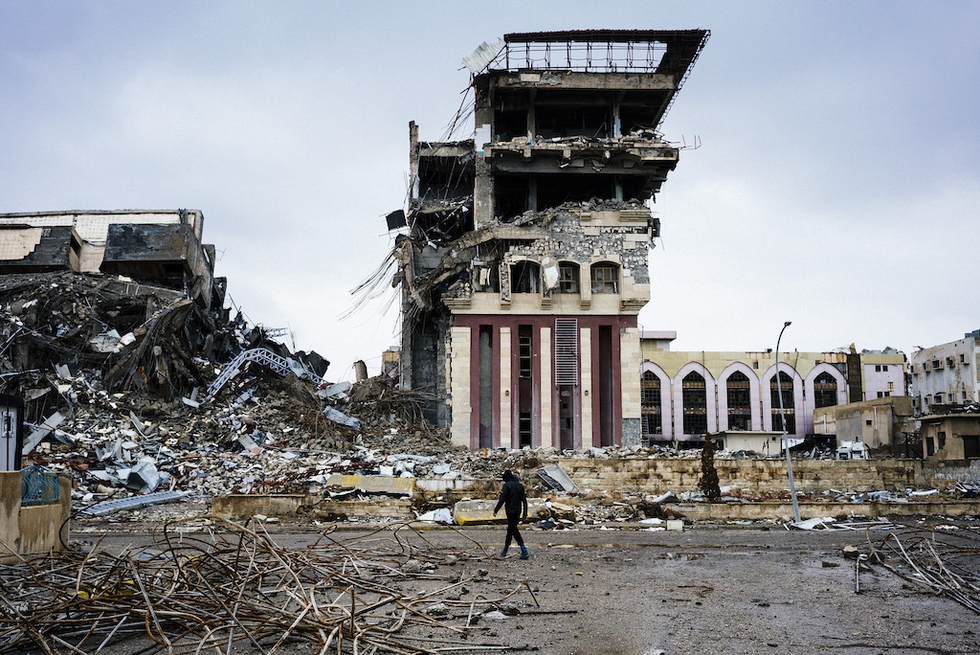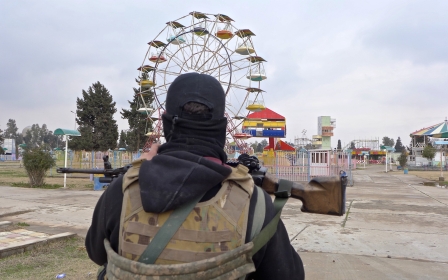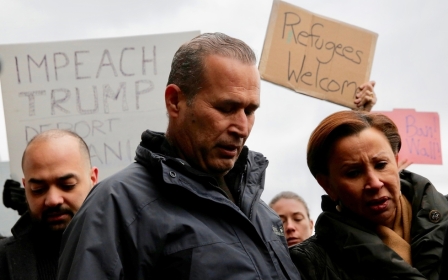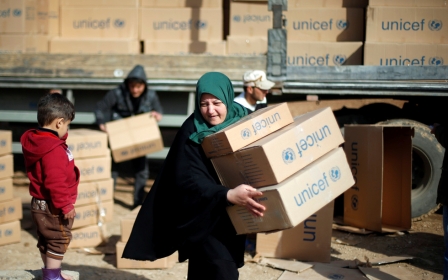350,000 children face 'siege-like conditions' in Mosul

Some 350,000 children are trapped in siege-like conditions in Mosul, under threat of execution if they try to flee, according to a report released by Save the Children on Monday.
As Iraqi forces continued to make advances against the Islamic State group in their last Iraqi stronghold, human rights groups have expressed increasing concern about the risk to children and other civilians from artillery and explosive weaponry.
Save the Children's Iraq country director, Maurizio Crivallero, urged forces fighting in the city to take every precaution to avoid civilians deaths.
“To a child it doesn’t matter where the bombs come from - it’s where they land that matters," he said.
"The impact of explosive weapons in west Mosul is likely to be deadly and indiscriminate. We must ensure that every effort humanly possible is made to protect children and their families from harm."
The organisation described the situation in Mosul as "increasingly desperate". Around 750,000 civilians are out of the reach of aid agencies and food, water and basic supplies are scarce.
“I talked to my family in west Mosul: they are staying inside and don’t have anything to eat or drink," said Mahmoud, a medic living in a recaptured area of eastern Mosul, speaking to Save the Children.
"No one is able to get the children anything, there’s no food or milk for babies – the markets are empty and the supplies they stockpiled have almost run out."
“There’s a huge risk for families trying to flee - if ISIS see a family trying to escape, they kill them on the spot. I tried to get mine out and agreed with a smuggler to bring them here, but he opted out because he saw a family of nine killed in front of his eyes.”
The World Food Programme said on Friday it had halved the food rations distributed to 1.4 million Iraqis displaced in the war against IS because of delays in payments of funds from donor states.
"This year somehow we are receiving commitments from donors a little bit late. We are talking with donors but we don't have enough money as of yet," said Inger Marie Vennize, spokesperson for the UN agency.
"We have had to reduce (the rations) as of this month."
The WFP is talking to the United States - its biggest donor - Germany, Japan and others to secure funds to restore full rations, she added.
"The 50 percent cuts in monthly rations affect over 1.4 million people across Iraq," Vennize said.
The impact is already being felt in camps east of Mosul. About 160,000 people have been displaced since the military campaign to recapture Mosul was launched in October.
"They gave us a good amount of food in the beginning, but now they have reduced it," said Omar Shukri Mahmoud at the Hassan Sham camp.
"They are giving an entire family the food supply of one person ... And there is no work at all ... we want to go back home," he added.
"We are a big family and this ration is not going to be enough," said 39-year-old Safa Shaker, who has a family of 11.
"We escaped from Daesh (Islamic State) in order to have a chance to live and now we came here and they have cut the aid. How are we supposed to live?" she said as she cooked for the family.
About three million people have been displaced from their homes in Iraq since 2014, when IS took over large areas of the country and of neighbouring Syria.
New MEE newsletter: Jerusalem Dispatch
Sign up to get the latest insights and analysis on Israel-Palestine, alongside Turkey Unpacked and other MEE newsletters
Middle East Eye delivers independent and unrivalled coverage and analysis of the Middle East, North Africa and beyond. To learn more about republishing this content and the associated fees, please fill out this form. More about MEE can be found here.




